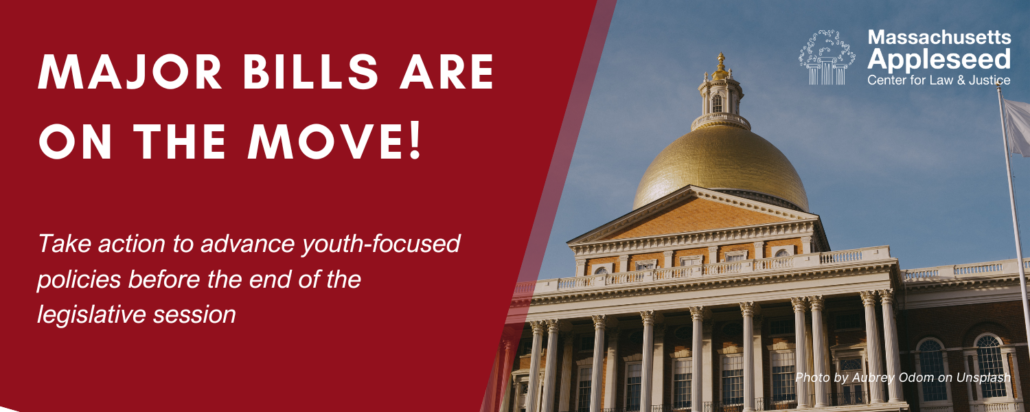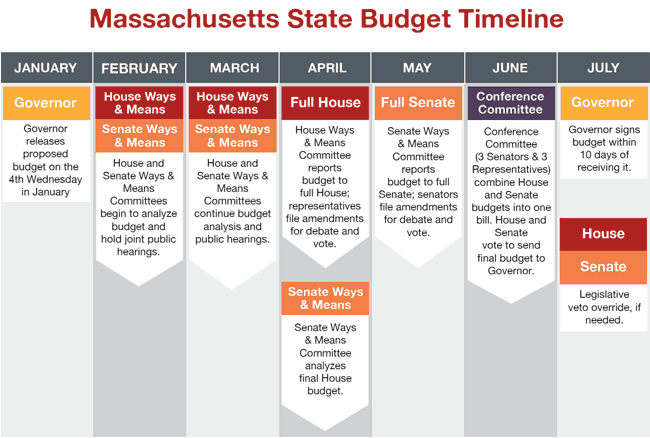 https://massappleseed.org/wp-content/uploads/2024/08/DCF-Comments-action-alert.png
1080
1080
Nadia Romanazzi
https://massappleseed.org/wp-content/uploads/2018/01/ma-applseeed-longlogo-548x156.png
Nadia Romanazzi2025-04-15 20:59:082025-06-06 12:34:57Dismantle Longstanding Language Barriers to Equal Access to State Services: Improve Language Access at State Agencies
https://massappleseed.org/wp-content/uploads/2024/08/DCF-Comments-action-alert.png
1080
1080
Nadia Romanazzi
https://massappleseed.org/wp-content/uploads/2018/01/ma-applseeed-longlogo-548x156.png
Nadia Romanazzi2025-04-15 20:59:082025-06-06 12:34:57Dismantle Longstanding Language Barriers to Equal Access to State Services: Improve Language Access at State Agencies2025-2026 Legislative Agenda
The following pieces of state legislation are part of MA Appleseed’s 2025-2026 Legislative Agenda. Each of these bills is a key component of our work to fight for inclusive policies and ensure Massachusetts families and youth can achieve justice, access the opportunities they are entitled to, and thrive. Sign up for opportunities to take action!
Policy Priorities
An Act relative to language access and inclusion
Sponsors: Rep. Madaro, Rep. González, and Sen. DiDomenico (H.3384/S.2622)
Mandates uniform language access standards across all public-facing state agencies and establishes multiple enforcement mechanisms for holding state agencies accountable when they fail to meet these standards. This bill works to ensure that all residents have equal access to the services and information they need to do like apply for unemployment assistance, keep food on the table, navigate the complexities of the child welfare system, and more.
An Act to reduce exclusionary discipline for violations for rules related to student grooming and dress
Sponsors: Rep. Fluker-Reid and Sen. Gomez (H.576/S.368)
Disrupts the school-to-prison pipeline and builds on the progress established by the CROWN Act by preventing students from losing valuable classroom time because of alleged dress code violations, which disproportionately impact Black and brown girls. It would not, however, prevent school administrators from imposing lesser forms of discipline on students whose clothing is vulgar, profane, contains hate speech, or is otherwise disruptive.
An Act allowing certain minors to consent to supportive services
Sponsors: Rep. Ultrino, Rep. Garballey, and Sen. Gomez (H.290/S.132)
Allows a mature minor (15-18 years old) to consent to supportive services without a parent or guardian. This bill will provide clarity to everyone so that youth experiencing homelessness can get the assistance necessary to meet their immediate survival needs and keep moving forward on their journey towards stability.
Interested in joining us in coalition to support these bills? Reach out!
Additional Legislation We Support
An Act to provide identification to youth and adults experiencing homelessness
An Act enhancing learning in the early school years through a ban on school exclusion in pre-kindergarten through 3rd grade
An Act to ensure equitable access to education, including special education services, for all students in Massachusetts
Sponsors: Rep. Decker and Sen. Creem (H.546/S.317)
Requires student-specific education data, such as school discipline and special education data, to be reported in a manner that reflects information about specific subgroups of students and requires DESE to publish the data that it already collects in such a way that it can be easily cross-tabulated, which can help advocates better identify disparities and inequitable treatment of students.
An Act relative to the training, assessment, and assignment of qualified school interpreters in educational settings
Sponsors: Rep. Cabral and Sen. Crighton (H.520/S.320)
This legislation directs the Department of Elementary and Secondary Education (DESE) to create standards and competencies for the hiring and assignment of school interpreters to provide parents and students with limited English proficiency (LEP) competent interpretation services.
An Act requiring accountability for inequities in suspension and expulsion (The RAISE Act)
Sponsors: Rep. Meschino, Rep. Ultrino, and Sen. Jehlen (H.731/S.380)
Aims to reduce disparities in academic achievement, suspensions, and expulsions among different student groups and requires the commissioner to submit a report on the progress made in addressing persistent disparities in achievement, suspension, and expulsion among student subgroups. The report must also include district level data disaggregated and cross-tabulated by student status and categories established by the commissioner including, but not limited to: race and ethnicity, gender, socioeconomic status, English language learner status, disability, and homeless children and youths.
An Act to remedy disparities in students’ educational achievement
Sponsors: Rep. Meschino, Rep Ultrino, and Sen. Jehlen (H.730/S.376)
Narrows the acceptable parameters for suspension or expulsion to prevent students from losing their education due to minor infractions and ensures that students who are facing more serious allegations have the right to due process. DOES NOT prohibit principals from excluding students who present a safety risk to the school.
An Act protecting benefits owed to foster children
Sponsors: Rep. Farley-Bouvier and Sen. Comerford (H.227/S.105)
Protects foster children’s Social Security benefits by correcting the Massachusetts Department of Children and Families’ practices of taking these benefits for the state’s General Fund and ensuring children receive 100% of the money they are legally entitled to. This will provide youth with greater financial independence that can help them avoid homelessness, incarceration, and further trauma as they age out of the system.
An Act relative to affirming and maintaining equal access to public education for all children
An Act relative to affirming and maintaining equal access to public education for all children (H.650/S.436)
Sponsored by Rep. Moran, Rep Peisch, Sen. Payano, and Sen. DiDomenico
Maintains essential federal protections, at the state level, for students with disabilities who are also learning English, and ensure qualified school interpreters. The legislation also preserves federal provisions protecting students with disabilities from inequitable school exclusion for behaviors that result from their disability, while also ensuring the safety of other students and school personnel.
Access to Justice
*An Act Relative to Language Access and Inclusion (H.3384/S.2125)
Sponsored by Rep. Madaro, Rep. González, and Sen. DiDomenico
Standardizes and enforces language access policies and protocols at public-facing state agencies to ensure all residents can obtain the information and resources they need to successfully navigate common problems and achieve stability.
An Act to Eliminate Disparate Impact (H.1889/S.1064)
Sponsored by Rep. Meschino and Sen. DiDomenico
Updates Massachusetts law to enable people to bring claims in state court challenging government programs or activities that have a harmful, discriminatory effect.
An Act promoting access to counsel and housing stability in Massachusetts (H.1952/S.968)
Sponsored by Rep. Rogers, Rep. Day, and Sen. DiDomenico
Establishes an Access to Counsel program to provide legal representation to eligible tenants and owner-occupants in eviction proceedings.
Educational Justice
An Act Enhancing Learning in the Early School Years Through a Ban on School Exclusion in Pre-Kindergarten Through 3rd Grade (H.541/S.373)
Sponsored by Rep. Decker and Sen. Gomez
Aims to improve educational outcomes and graduation rates by banning Massachusetts public schools from suspending or expelling students in grades pre-K through third grade for disciplinary infractions.
An Act to Ensure Equitable Access to Education, Including Special Education Services, for All Students in Massachusetts (H.546/S.317)
Sponsored by Rep. Decker and Sen. Creem
Requires publicly available school discipline data to be disaggregated in a way that can be easily cross-tabulated, which can help advocates better identify disparities and inequitable treatment of students.
*An Act to To Reduce Exclusionary Discipline For Violations of Rules Related To Student Grooming and Dress (H.4400)
Sponsored by Rep. Fluker Oakley and Sen. Gomez
Prohibits school officials from suspending or expelling students solely based on the violation of dress codes, which disproportionately impact Black and brown girls.
An Act Relative to Safer Schools (S.387)
Sponsored by Sen. Kennedy
Supports schools that want to transition their school safety programs to ones that do not rely on police and requires more transparency on the impact of School Resource Officers’ interactions with students and their information sharing with law enforcement agencies.
An Act Relative to the Training, Assessment, and Assignment of Qualified School Interpreters in Educational Settings (H.520/S.320)
Sponsored by Rep. Cabral and Sen. Crighton
Ensures limited English proficient parents and students are provided with competent interpretation services at school.
An Act to remedy disparities in students’ educational achievement (H.730/S.376)
Sponsored by Rep. Meschino, Rep. Ultrino, and Sen. Jehlen
Addresses disparities in exclusionary discipline by narrowing acceptable parameters for suspension or expulsion and strengthening due process protections to safeguard students’ rights.
An Act Relative to Educator Diversity (H.549/S.311)
Sponsored by Rep. Peisch and Sen. Lewis
Develops an alternative process for granting educator licensure and establishes guidelines to increase racial and ethnic diversity among teaching, administration, and staff positions, thereby enhancing the impact of additional reform efforts and improving outcomes for BIPOC students.
An Act Relative to Universal School Meals (H.603/S.261)
Sponsored by Rep. Vargas and Sen. DiDomenico
Guarantees free universal school meals for all students attending Massachusetts schools.
Youth Homelessness
*An Act Allowing Certain Minors to Consent to Supportive Services (H.290/S.132)
Sponsored by Rep. Garballey, Rep Ultrino, and Sen. Gomez
Expands the legal rights of unaccompanied minors experiencing homelessness and ensures they can better meet their basic needs by allowing those ages 15 or older to consent to supportive services without a parent or guardian.
*An Act to Provide Identification to Youth and Adults Experiencing Homelessness (H.3750/S.2399)
Sponsored by Rep. Garballey, Rep. O’Day, and Sen. Kennedy
Removes barriers and eases the process for youth experiencing homelessness to obtain state ID, which they need to accomplish a host of everyday tasks and access services.
An Act Protecting Benefits Owed to Foster Children (H.227/S.105)
Sponsored by Rep. Farley-Bouvier and Sen. Comerford
Protects foster children’s Social Security benefits by prohibiting the Massachusetts Department of Children and Families from taking these benefits for the state’s General Fund and ensuring children receive 100% of the money they are legally entitled to. This will provide youth with greater financial independence that can help them avoid homelessness, incarceration, and further trauma as they age out of the system.
An Act to improve and modernize the information technology systems and capacities of the judiciary
The Judiciary IT Bond bill was signed into law August 10, 2022 and is codified in Chapter 175 of the Acts of 2022!
Provides $165.5 million in funding to update the Massachusetts Trial Court’s IT structure and ensure the implementation of 1) Digital Courthouses and Courtrooms, 2) a Modern and Secure Judiciary, and 3) Modern Court Operations.
An Act prohibiting discrimination based on natural hairstyles
The CROWN Act was signed into law July 26, 2022 and is codified in Chapter 117 of the Acts of 2022!
Amends state civil rights laws to include protections against natural hairstyle discrimination.
An Act promoting student nutrition
Signed into law October 2021!
Ends lunch shaming, a practice in which children are humiliated or denied lunch because of an unpaid school meal debt.
An Act regarding breakfast after the bell
Signed into law August 4, 2020!
Alleviates childhood hunger by expanding access to school breakfast.
Learn more about Rise and Shine Massachusetts, a statewide coalition which advocates for state legislation that increases equitable access and participation in school breakfast for thousands of low-income children across our Commonwealth.
An Act relative to educational opportunity for students
The Student Opportunity Act was signed into law November 26, 2019 and is codified in Chapter 132 of the Acts of 2019!
Reforms the state’s funding formula for public education to provide increased and equitable school funding, improving access to quality educational opportunities for students of color, students with disabilities, English language learners, immigrant youth, and youth experiencing homelessness.
The State Budget Process
Each year, the Massachusetts state legislature passes a state budget that provides funding for various state programs, agencies, and departments for the following year. The budget process begins in January, when the Governor files their budget recommendations. In April and May the Massachusetts House of Representatives and Senate each pass their own separate budget proposals and in June, a Conference Committee made up of three Senators and three Representatives, is appointed to iron out the differences between the House and Senate budgets. A joint budget is sent to the Governor by July 1st and the Governor has ten days to approve, amend, or veto each line item.
At each stage of this process, advocates, including Massachusetts Appleseed and our supporters, have opportunities to contact their elected representatives and urge them to adequately fund programs that they care about.
You can reach your elected officials by:
- Calling the State House switchboard: 617-722-2000
- Looking up their email and other direct contact information via www.wheredoivotema.com.
Sign up to receive ACTION ALERTS from Massachusetts Appleseed with information about how you can advocate in support of funding for programs that address youth homelessness and access to education and justice.




